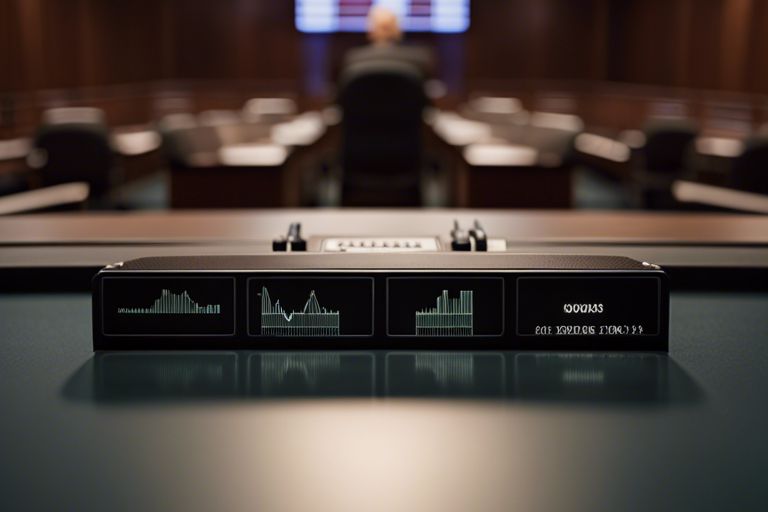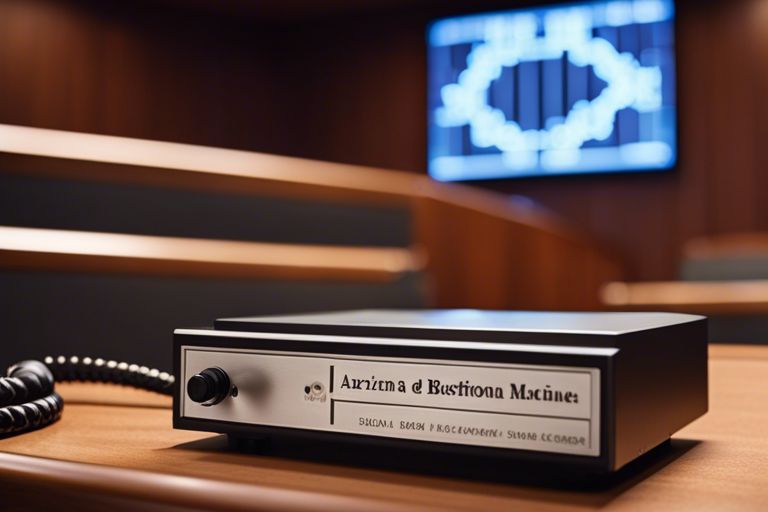Sexual Assault cases are some of the most sensitive and challenging in the legal system, especially in Arizona. In the context of defending against these serious charges, parties may turn to various strategies, one of which is the use of polygraph tests. In Arizona, the admissibility and reliability of polygraph tests in courtrooms are often debated, with their impact on sexual assault defense cases being a subject of particular interest. Understanding how polygraph tests can influence the outcome of these cases is vital for all parties involved, from defendants to prosecutors and judges.

Key Takeaways:
- Use as a Defense Strategy: Polygraph tests can be used as a defense strategy in sexual assault cases in Arizona to challenge the credibility of the accuser and support the defendant’s version of events.
- Admissibility in Court: In Arizona, polygraph test results are generally not admissible as evidence in court due to their unreliability and potential for manipulation, but can sometimes be presented in limited circumstances with court approval.
- Impact on Perception: Even if polygraph results are not admissible in court, the fact that a defendant took or refused to take a polygraph test can still impact how they are perceived by the jury and the public, influencing the overall narrative of the case.
1. Polygraph results not admissible as evidence in court.
2. Used to help evaluate credibility of accused and accuser.
3. Can influence plea negotiations and case resolution.
4. Limited validity and accuracy of polygraph tests.
5. Defense attorneys may advise against taking polygraph test.
6. Could impact public perception and reputation of accused.
Legal Framework in Arizona
Admissibility of Polygraph Results
If you find yourself dealing with a sexual assault defense case in Arizona and are considering the use of a polygraph test, it’s crucial to understand the legal framework surrounding the admissibility of polygraph results in court. In Arizona, polygraph results are generally not admissible as evidence in court proceedings. This means that even if you have taken a polygraph test and the results are favorable to your defense, they cannot be presented as evidence to the jury.
Impact on Jury Perception
On the other hand, while polygraph results may not be admissible as evidence, their mere mention during a trial can have a significant impact on jury perception. When the fact that a polygraph was taken is disclosed to the jury, it could influence their perception of the defendant’s truthfulness, regardless of the test’s actual reliability. It is vital for defendants and attorneys to consider the potential risks and benefits of mentioning polygraph tests during a trial, as it could sway the jury’s opinion in unpredictable ways.
Polygraph Tests in the Defense Strategy
Role in Pre-Trial Proceedings
PreTrial Keep in mind that polygraph test results are generally not admissible as evidence in court in Arizona. However, they can still play a crucial role in pre-trial proceedings as part of the defense strategy. By voluntarily submitting to a polygraph test and sharing the results with the prosecution, the defense can demonstrate their client’s willingness to cooperate and their confidence in their innocence, potentially influencing the prosecution’s decisions in the case.
Influence on Plea Bargains
To Polygraph test results can also have a significant impact on plea bargains in sexual assault defense cases in Arizona. If the defendant passes a polygraph test, it can strengthen their defense and negotiating position, leading to more favorable plea bargain offers from the prosecution. On the other hand, if the test results are inconclusive or indicate deception, it can prompt the defense to consider accepting a plea deal to avoid the risks of a trial.
Plus, since polygraph tests are not foolproof and their results are not always accurate, it is important to approach them with caution. False positives or negatives can occur, potentially harming the defense’s case. Therefore, it is crucial to consult with an experienced defense attorney who can guide the defendant on the strategic use of polygraph tests in their defense.
Limitations and Controversies
Once again, when it comes to the use of polygraph tests in sexual assault defense cases in Arizona, there are certain limitations and controversies that need to be addressed. It is crucial to understand the constraints and disputes surrounding the reliability and ethical considerations involved in the utilization of polygraph testing in such sensitive matters. To probe deeper into these issues, it is crucial to examine the Value of Polygraph Testing in Sex Offender Management.
Questioning the Reliability of Polygraph Tests
Controversies exist regarding the reliability of polygraph tests when used in sexual assault defense cases. Critics argue that these tests are not foolproof and can produce false results, leading to wrongful accusations or incomplete justice. While polygraphs can sometimes be useful in gathering supplementary information, their accuracy remains a subject of debate among experts in the field.
Ethical Considerations in Sexual Assault Cases
On the ethical front, using polygraph tests in sexual assault cases raises several considerations. One of the main concerns is the potential violation of the suspect’s rights, as polygraph results are generally inadmissible in court. Additionally, there is a risk of relying too heavily on these tests, which may overshadow other crucial evidence or investigative avenues. Balancing the ethical implications of polygraph testing with the pursuit of justice can be a delicate and complex task for legal professionals.
Alternatives to Polygraph Tests
Other Forensic Tools and Methods
For alternative forensic tools and methods in sexual assault defense cases in Arizona, professionals may consider utilizing techniques such as DNA analysis, forensic evidence collection, and psychological evaluations. These tools can provide valuable insights and evidence to support the defense’s case and help establish credibility in the courtroom.
The Future of Lie Detection in Legal Proceedings
To address the limitations and controversy surrounding polygraph tests, the future of lie detection in legal proceedings may involve the development of more advanced technologies such as fMRI scans and voice stress analysis. These methods aim to provide more accurate and reliable results for assessing truthfulness in individuals involved in sexual assault cases. While these technologies are still in the research and development stage, they hold promise for improving the accuracy of lie detection in legal settings.
For instance, fMRI scans can detect changes in brain activity that may indicate deception, providing more reliable and scientifically sound results compared to traditional polygraph tests. Voice stress analysis, on the other hand, analyzes vocal cues to assess stress levels and potential deceit, offering another promising avenue for improving lie detection techniques in legal proceedings.
To wrap up
Drawing together the information presented, it is clear that polygraph tests can have both benefits and limitations when used in sexual assault defense cases in Arizona. While they can potentially help support the credibility of the accused and provide additional evidence for their innocence, the results are generally inadmissible in court due to their unreliability. It is important for defendants, victims, and legal professionals to understand the complexities surrounding polygraph tests and to approach their use with caution. In the end, the impact of polygraph tests on sexual assault defense cases in Arizona remains a contentious and complicated issue that requires careful consideration.
FAQ
Q: What is a polygraph test?
A: A polygraph test, commonly known as a lie detector test, is a tool used to measure physiological responses such as heart rate, blood pressure, respiration, and skin conductivity while a person is asked a series of questions.
Q: Can a polygraph test be used as evidence in a court of law in Arizona?
A: In Arizona, polygraph test results are generally not admissible as evidence in court due to concerns about their reliability and accuracy.
Q: How can a polygraph test impact a sexual assault defense case in Arizona?
A: While not admissible as evidence, the results of a polygraph test may influence the decision-making of prosecutors, defense attorneys, or even the jury in a sexual assault defense case in Arizona.
Q: Should a defendant in a sexual assault case take a polygraph test in Arizona?
A: It is important for defendants to consult with their defense attorney before deciding to take a polygraph test in Arizona, as the results may have unintended consequences on the case.
Q: Are there any risks associated with taking a polygraph test in a sexual assault defense case in Arizona?
A: There are risks involved in taking a polygraph test, as the results may not be accurate and could potentially harm the defense strategy. It is crucial to seek legal advice before deciding to take a polygraph test in Arizona.


Recent Comments